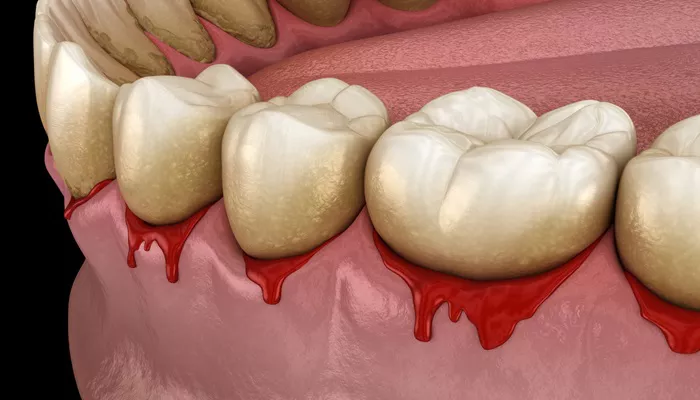A recent study has shown that intensive treatment for diabetes can significantly reduce inflammation associated with gum disease. While the connection between diabetes and periodontal disease is well established, the effects of diabetes treatment on oral health have not been thoroughly understood. This new research, published in Diabetes, Obesity and Metabolism, highlights how focused diabetes management can positively influence periodontal health.
The study was conducted by a collaborative team from the Graduate Schools of Dentistry, Medicine, and Engineering at Osaka University.
Researchers provided two weeks of intensive diabetes treatment to 29 patients with type 2 diabetes. They analyzed various systemic and dental indicators before and after the treatment without performing any dental interventions.
Results indicated notable improvements in glycoalbumin levels, a marker for blood sugar control, as well as reductions in the Periodontal Inflamed Surface Area (PISA), which measures gum disease inflammation. These findings suggest that effective diabetes management not only enhances blood glucose levels but also alleviates periodontal inflammation.
Further analysis revealed that participants who experienced significant improvements in PISA had higher pre-treatment levels of C-peptide.
This suggests better insulin secretion capabilities. Additionally, these individuals showed better cardiovascular risk ratios and ankle-brachial index values, indicating less severe diabetic neuropathy and peripheral vascular disorders.
Masae Kuboniwa, the senior author of the study, emphasized the importance of these findings. “This research is expected to deepen our understanding of the mechanisms linking diabetes and periodontal disease,” she stated. “Our findings indicate that managing periodontal disease in diabetic patients requires not just dental treatment but also early intervention in diabetes management.”
Kuboniwa also noted that fostering collaboration between medical and dental professionals from the onset of diabetes could play a crucial role in preventing both the onset and progression of periodontal disease in diabetic patients.
This study adds to the growing body of evidence suggesting a bidirectional relationship between diabetes and gum disease.
While it is known that periodontal treatment can improve blood sugar control, this research underscores the necessity of addressing both conditions concurrently for optimal health outcomes.
As healthcare providers continue to explore integrated approaches to managing chronic diseases like diabetes, this study serves as a reminder of the interconnectedness of systemic health and oral hygiene. By prioritizing comprehensive care strategies, there is potential for significant improvements in patient health across multiple domains.

